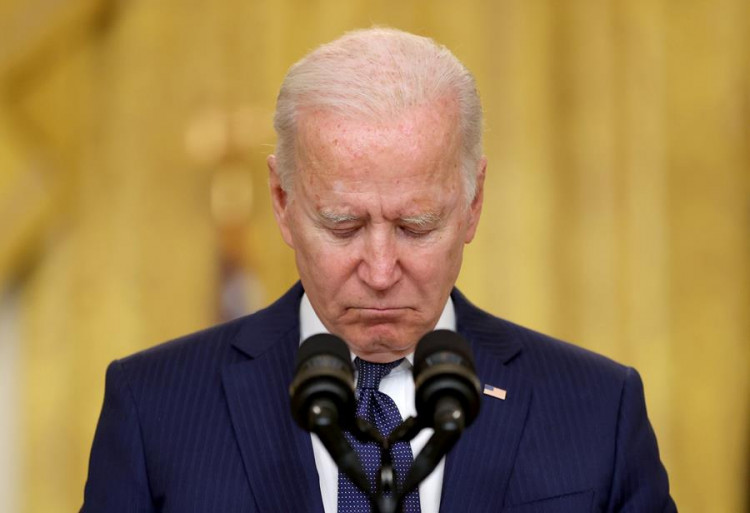In a candid admission during his first television interview since exiting the 2024 presidential race, President Joe Biden revealed that pressure from Democratic Party elites, including former House Speaker Nancy Pelosi, played a significant role in his decision to step aside. Speaking to CBS News, Biden expressed concerns that his continued candidacy would become a distraction and potentially harm the Democratic Party's chances in the upcoming election.
"A number of my Democratic colleagues in the House and Senate thought that I was going to hurt them in the races," Biden said, emphasizing the potential for his reelection bid to divert attention away from critical issues. "I was concerned if I stayed in the race, that would be the topic - you'd be interviewing me about why did Nancy Pelosi say [something] ... and I thought it'd be a real distraction."
Biden, who had previously positioned himself as a "transition president" during his 2020 campaign, acknowledged the challenges posed by his age, stating, "I can't even say how old I am - it's hard for me to get out of my mouth." Despite these challenges, he reiterated that his decision to withdraw was driven by a commitment to maintaining democracy and ensuring a strong Democratic campaign in 2024.
The president's decision came in the wake of a widely criticized debate performance against former President Donald Trump in late June, which led to a public mutiny among some Democrats. Pelosi, initially a staunch defender of Biden, reportedly played a key role in convincing him to step down. According to CNN, Pelosi pressed Biden on polling data that indicated he was unlikely to win the presidential election. When Biden resisted, Pelosi allegedly had Biden's longtime adviser, Mike Donilon, join the conversation to further persuade him.
"Nancy made clear that they could do this the easy way or the hard way," a Democratic insider familiar with the discussions told Politico. "She gave them three weeks of the easy way. It was about to be the hard way."
Pelosi, known for her political acumen and behind-the-scenes maneuvering, has largely kept silent about the nature of her conversations with Biden. While she has publicly praised Biden as a "consequential" president deserving of recognition, she has also subtly criticized his political operation, admitting, "I've never been that impressed with his political operation."
Biden's withdrawal has led to the swift consolidation of Democratic support around Vice President Kamala Harris, who has since gained ground against Trump in the polls. Harris, who officially became the Democratic Party's presidential nominee earlier this month, has outperformed Biden in recent surveys, leading Trump by four percentage points in key swing states like Wisconsin, Michigan, and Pennsylvania, according to a New York Times/Siena College poll.
Despite the public and private pressures that led to his exit, Biden maintains that his campaign against Trump would have been competitive. "Polls indicated a matchup between him and Trump would have been down to the wire," he claimed, though he acknowledged that his poor debate performance, which he attributed to illness, may have contributed to the growing concerns within his party.
Looking ahead, Biden plans to actively campaign for Harris, indicating that he will do "whatever Kamala thinks I can do to help most," including participating in campaign events in key battleground states such as Pennsylvania. The president also expressed deep concern about the potential for unrest following the November election, stating that he is "not confident at all" that there will be a peaceful transfer of power if Trump loses.






